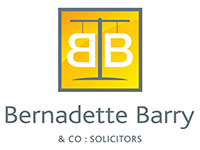This section is filled with information about conveyancing, buying and selling land and property.
Buying a New House
If you have decided to buy a new house then you will have placed a booking deposit with the Estate Agent who will then ask you our name as your Solicitor. It is wise to have chosen your solicitor before you get to this point.
Loan Offer
You are likely to have secured a loan in order to purchase your new house and the lender will issue a Loan Offer Approval Letter and Legal Pack which should immediately be passed to your Solicitor. We will go through the Loan Offer Conditions and make sure you understand all of the implications. You should not sign a contract until you have signed a written Loan Offer Approval Letter.
Contract to Purchase
Once you have signed your Loan Offer Approval Letter, we will explain the Contract documentation which will need to be checked carefully. In order to bind the contract, a contract deposit must be paid and this is usually 10% of the purchase price.
Once the contract has been signed by both parties, contracts have been exchanged and the payment has been made the contract is binding. Once contracts have been exchanged neither party can pull out of the sale. If they do they may incur penalties or even face court acton.
Stamp Duty
Ask us to determine your exact liability before you pay your deposit.
Snag List (newly built houses only)
This is something that you should ask an Architect to do for you before you purchase a newly built house. The costs associated with this snag list are paid for by you and do not form any part of the contract negotiations. Usually, these are minor snags that the builder will fix before completion of the contract but sometimes a major problem can be identified so it’s worth taking the time and money to complete this task.
Buying a Second Hand House
The deposit and contract stages are the same as if you are buying a new house. However, there are a couple of additional items to bear in mind:
Structural Survey
This is not the same as the Valuation Survey carried out by the mortgage lender. A structural survey is advised if the property is more than 6 years old and we would advise you to engage the services of a Structural Surveyor and instruct him to carry out a full structural survey. If the property has its own septic tank the structural survey should also include this. You need to know the overall condition of the property and any future expenditure that may be required for repairs or maintenance to the property and septic tank.
Stamp Duty
Always check with your Solicitor for the most up-to-date rates and regulations or contact Revenue direct.
Buying or Selling Land
Again, the basic deposit and contract process is the same as when buying a new house. However, there are some particular issues to consider:
Boundaries
We strongly recommend that you engage the services of an Architect to establish and agree with the Seller the exact boundaries of the land which you intend to purchase. Using markers to physically mark out the ground is highly recommended.
Geological Survey
If you intend to develop the land then a geological survey is recommended using the services of a qualified and experienced Geological Surveyor.
Planning Search
This search will show up any proposed developments in the area and any current, past or planned developments regarding the land.
Planning Permission
It is advisable when purchasing land to check for planning permissions with the local Planning Office.
Stamp Duty
The purchase of land always attracts Stamp Duty at various rates. The actual rate depends on the amount paid for the land. This stamp duty must be paid to your Solicitor on the date the land is purchased. We will be happy to advise you on the details.
Selling a House
Once your house is under offer, you need to allow your Solicitor to collect the Title Deeds (usually lodged with your mortgage lender). You need to give us a list of the contents included in the sale and the date that you propose to move out. We will also need your PPS numbers and tax status information.
Joint Property Purchases
Where there are two or more purchasers, the purchasers have a choice in relation to how they will own the property. We are happy to advise clients based on individual circumstances. The two basic options are:
Joint Tenancy (Survivorship)
In this case the purchasers opt to purchase the property jointly as “joint tenants” and in the event that one purchaser dies, his or her share will pass by survivorship to the surviving partner.
Tenants-in-Common (Each hold one half share)
In this case, the one half share of the deceased partner would pass to his/her Next-of-Kin. This would follow the Provisions of the Succession Act.
WARNING
It is presumed that a joint tenants/survivorship is intended unless otherwise stated so you should consult your Solicitor as early as possible.
Documents to request from the Estate Agent
- BER Certificate – Building Energy Rating Certificate
- NPPR Receipt – Non Principle Private Residence payment (€200 p.a.)
- Household Charge Receipt
- Service Charge Receipts
- Property Tax Receipt
- Septic Tank Registration Certificate (if applicable)
- Management Company details (if applicable)

